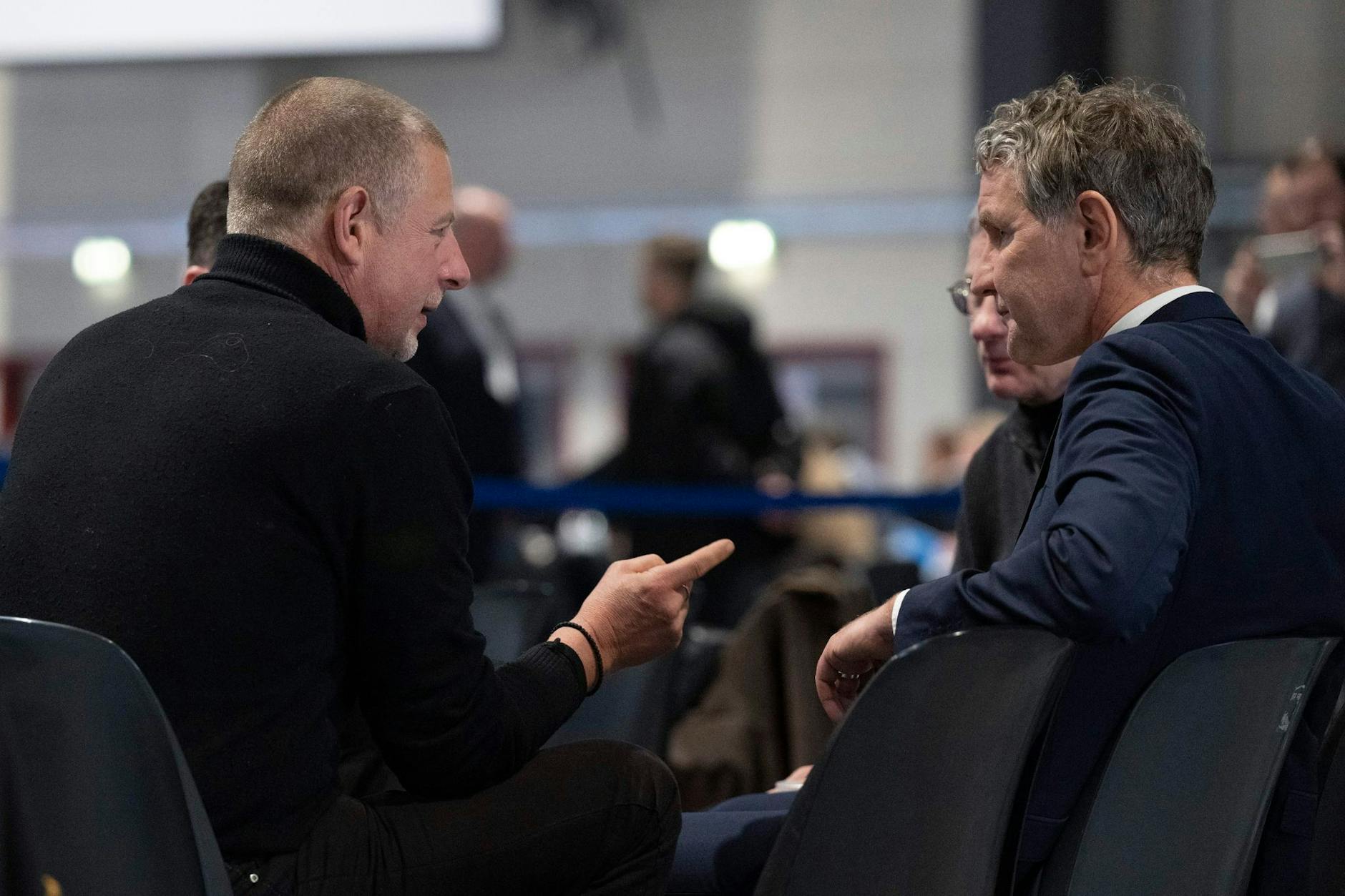Kubitschek terminates book contract with Krah: “He repeatedly spoke to Correctiv in a denunciatory and criminalizing manner.”

The dispute between right-wing publisher Götz Kubitschek and Maximilian Krah is entering a new phase. The conflict is no longer solely about the term "remigration," which AfD politician Krah recently distanced himself from. It's about allegedly "inaccurate claims" being spread, "lack of style," cancel culture, and Krah's new book, which Kubitschek no longer wants to publish.
Initially, the discussion took place behind closed doors. Then Kubitschek, his wife Ellen Kositza, and the AfD politician sat down together in front of the camera. In a YouTube video, the three discussed what had united the right-wing front for years and would continue to unite it—at least, that was Kubitschek's assumption. But instead of healing the cracks in this exchange, the divide in the right-wing camp has only deepened since then.
Krah had “poisoned” the debate surrounding remigration from the very beginningAfter Krah crossed a "fiery red line," as Kubitschek puts it, by providing quotes to the "enemy," the research platform Correctiv , and branding parts of the right-wing extremists as enemies of the constitution, Kubitschek felt compelled to take action. That's how he describes it.
In his text "Krah, Höcke, Noise," Kubitschek takes stock. He lists what Krah has done in recent weeks and months and explains why he "poisoned" the absolutely necessary debate surrounding the term remigration from the very beginning. Kubitschek believes: "Krah initiated this debate with the intention of emerging victorious." He concludes: "Krah's methods of conducting the discussion, however, are beyond reproach. His book cannot be published by Antaios under these circumstances."
Maximilian Krah has not yet responded publicly. When contacted by the Berliner Zeitung, the AfD politician told the newspaper: "I learned via social media that Götz Kubitschek doesn't want to publish my new book after all. To be honest, this decision surprised me." He added that Götz Kubitschek hadn't informed him in advance: "Such behavior is in bad taste."
The AfD politician shares his supporters' assessment that publisher Kubitschek is practicing cancel culture by no longer wanting to have anything to do with Krah's new book: "Yes, that is cancel culture, and it is regrettable that they are trying to remove me from the debate in this way."

And what's next? Krah says he's already received an alternative offer. A small publisher is interested. "Otherwise, I'll do the Poschardt and publish it myself," Krah adds. Given the huge attention, demand is already so high that it doesn't matter where or by which publisher his new work appears.
Götz Kubitschek, co-founder of the now-defunct right-wing extremist think tank "Institut für Staatspolitik" and managing director of the Schnellroda-based Antaios publishing house, contradicts his author's account in an interview with the Berliner Zeitung: "Krah knew that I would reserve the right to publish under the new circumstances." Recently, Krah was no longer reachable. "I didn't want to wait any longer," says Kubitschek.
“Krah always had a stage in my publishing house and still would”Regarding the accusation that he is practicing cancel culture, the publisher says: "Cancel culture means not allowing any other opinion and institutionally suppressing it. I have never acted that way. We continued the debate with Krah's participation on sezession.de, but demanded rules of the game – factual debate yes, criminalization of the debate participant Sellner no."
However, Krah did not adhere to this and sought contact with people who were unacceptable to Götz Kubitschek: "He repeatedly spoke to Correctiv about us and our author Martin Sellner – in a denunciatory and criminalizing manner. Correctiv, and Marcus Bensmann in particular, are not just opponents in a political dispute, but are closely intertwined with state and civil society institutions in the gray area between the Office for the Protection of the Constitution and journalism."
He concludes: "I don't know what Krah was doing there and what he was looking for. But it was a decision that now had consequences." There is no evidence for the accusation and the insinuation that Correctiv is collaborating with the Federal Office for the Protection of the Constitution.
A planned conversation between Krah, Kubitschek, and Sellner was canceled at short notice two weeks ago. Will there be no further exchange? "Krah always had a platform at my publishing house and still would, and Sellner doesn't shy away from substantive debate," says Götz Kubitschek.
He still believes that the discussion surrounding the term remigration is urgently needed. But: "To serve not as a conversation partner on stage, but as a black backdrop against which Krah wanted to appear white – that is neither Sellner's nor my role."
Berliner-zeitung


